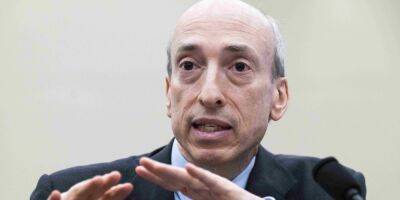Brokerage industry looks for alternatives to payment for order flow amid SEC's threatened crackdown
The brokerage industry is exploring alternatives to payment for order flow as SEC chair Gary Gensler takes aim at the practice.
One idea is coming from Apex Clearing, CNBC has learned. The clearing firm handles trades for SoFi, Webull and other fintechs and has been quietly building a marketplace for matching customer orders. The «auction» process, as the Apex CEO describes it, could let stock exchanges compete directly with market makers like Citadel Securities and Virtu.
«It creates more competition, which will translate into better prices,» Bill Capuzzi, CEO of Apex, told CNBC. «The big winner is the retail investor.»'
Earlier this week, SEC chairman Gary Gensler proposed changing rules that govern how Wall Street handles retail trades. The top securities regulator said his plan would, in part, require firms to compete directly to execute trades from retail investors. Gensler is also looking for more disclosures around fees and data. The SEC chair has been critical of potential conflicts of interest and complained of power being concentrated among select market makers.
«I asked staff to take a holistic, cross-market view of how we could update our rules and drive greater efficiencies in our equity markets, particularly for retail investors,» Gensler said at a Piper Sandler fintech conference on Wednesday.
Payment for order flow, or PFOF, refers to payments brokerages receive for directing customer trades to a market maker, such as Citdel or Virtu. While it's often a fraction of a penny, the arrangement brings in the bulk of revenue for Robinhood and other brokerages, and has allowed them to offer commission-free trading.
PFOF is widely practiced by the brokerage industry but came under fire during the Gamestop saga.
Read more on cnbc.com







![Has Binance Coin [BNB] hit a brick wall after gaining 17% within eight days? - ambcrypto.com](https://finance-news.co/storage/thumbs_400/img/2022/7/8/32737_l0us.jpg)











